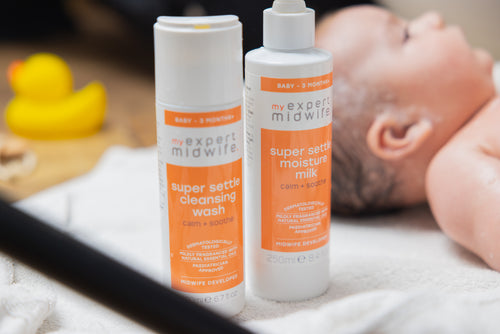Going over your due date
Many women become fixed upon a due date, which is usually determined by a dating scan. This date is calculated to be when you reach your 40 weeks pregnancy exactly. However, only around 5% of women will have their babies on their ‘due date’. Psychologically some women may become disheartened when their baby has not arrived by this predicted day.
In our culture we are used to being able to control a lot of aspects of our lives. Having a baby is a very important, if not the most important part of most people’s lives. So, it can be difficult to trust our bodies and ‘let go’ of feelings of fear when we do not feel able to control when our babies will be born.
Hormones
Hormones are the key to helping labour begin naturally and to assist in labour progressing well. Your hormones work best when you are as relaxed and feeling as stress-free as possible. Although it sounds simple, the more relaxed you can be, the easier it will be for labour hormones to work effectively.
A soothing massage can ease anxieties and relieve tension. Our Fantastic Skin Elastic is ideal to use for pregnancy massage, and can be beneficial for you, your partner and your baby to all bond through the sensation of touch.
Oxytocin
Your labour is driven by the hormone oxytocin, which helps to start and maintain contraction patterns. Oxytocin is also the hormone responsible for helping us to fall in love, which is why feeling loved, safe and secure within your own comfortable environment, with your chosen birth partners and supporters, will increase its production.
Feeling anxious and worried, or being in an environment that is unusual, has the potential to increase the hormone adrenaline (the ‘stress hormone’), which can override your oxytocin levels and potentially slow down your contraction patterns
Preparing for labour
- Food and drink - Red raspberry leaf tea (RRLT) can be taken from 32 weeks pregnant – starting slowly and building up - and is available from health food shops or some supermarkets. Small studies have indicated that RRLT is not thought to encourage labour to start, but rather to tone the uterus to enable it to contract more effectively once labour begins. New research now tells us that women who eat 6 dates a day from 36 weeks are:
-
- 21% more likely to go into labour spontaneously
- 74% more likely to have good cervical dilatation on admission to hospital
- 77% more likely to have a shorter labour
- Nipple stimulation - The hormone oxytocin is also produced when breastfeeding, therefore hand expressing from 36 weeks can encourage its production. Any milk that you may collect from hand expressing can be stored in the freezer and used after your baby is born.
- Exercise - Exercise helps you to maintain a good level of fitness for labour and birth. It also encourages the production of feel-good hormones called endorphins. Walking, especially using the stairs in later pregnancy, can encourage your baby’s head to engage into your pelvis. Swimming and yoga can also be good at promoting relaxation.
- Acupuncture and acupressure - These treatments can help to stimulate the production of oxytocin, as well as help relieve aches and pains, and promote relaxation. Seek a trained professional to perform acupuncture and to teach you acupressure in your pregnancy.
- Sex - Having penetrative and non-penetrative sex can stimulate oxytocin. Semen contains prostaglandins, which can help to soften the cervix, making it ready for when labour starts.
- Nesting - Take time out during your pregnancy to think about the environment you would like to labour in. Often this will involve having your favourite things around you, comfortable cushions or beanbags, low lighting (perhaps fairy lights or tea lights) and plenty of your favourite snacks and drinks to hand.
- Laughing - Do or watch something that makes you laugh, such as a comedy or a feel-good film. Remember, relaxation will promote oxytocin and increasing your levels of oxytocin will make labour more likely to start.
- Research induction of labour -Induction of labour (IOL) may be offered to you at varying times after 40 weeks of pregnancy, depending on your local hospital policies. Although the reasons should be fully explained to you at your appointment with your doctor or midwife, it is always best to read & inform yourself about it and to ask your care providers for the evidence behind the reason they recommend IOL. This will enable you to weigh up the advantages and disadvantages, so you can make the right choice for you and your baby. Remember that it is your choice to accept or decline the offer of induction of labour.
Summary
The estimated due date (EDD) you were given at your early or dating scan should not be seen as an ‘expiry date’. A pregnancy is considered to be ‘at term’ between 37 and 42 weeks. Trusting your body, informing yourself about possible ways to help labour start spontaneously and reading/asking about the reasons and recommendations behind induction of labour will help you feel more relaxed about going ‘over-due’ and allow you to make the decisions that are right for you and your family.






